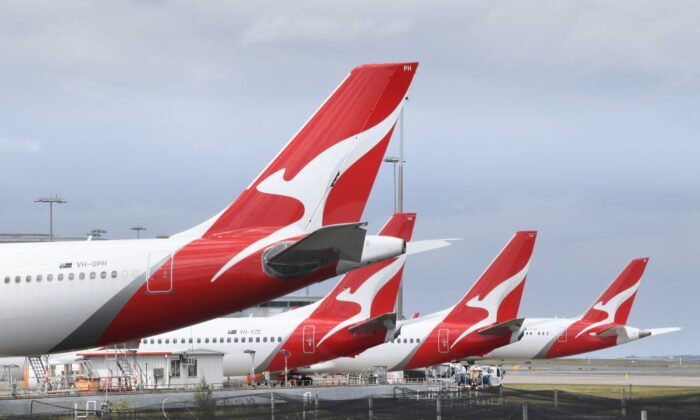White Paper Suggests Airlines Might Have to Compensate Passengers for Flight Delays
The Aviation Customer Rights Charter will also establish guidelines for when airlines must provide refunds to passengers in the original form of payment and within a timely manner.
Australian travelers will now have easier access to cash compensation when their flights are canceled or delayed.
Transport Minister Catherine King emphasized the need to protect consumer rights as Australian traveler numbers return to pre-COVID-19 levels.
“Too many Australians have faced difficulties when flights are canceled or disrupted, making it excessively complicated to receive a refund or reach a customer service representative,” she stated. “Customers deserve a refund if owed.”
According to a report by the Bureau of Infrastructure and Transport Research Economics, in 2023, approximately one-third of flights experienced delays, with 3.7 percent, around 16,000, being canceled.
New Industry Watchdog
The Commonwealth government has pledged to establish a watchdog called the “Aviation Industry Ombuds Scheme,” replacing the existing airline customer advocate funded and operated by airlines. The current advocate lacked the authority to oversee refund orders and compensations adequately.
The new ombuds scheme can direct airlines and airports to compensate customers, provide industry conduct reports, and propose government changes.
The scheme will enforce an Aviation Customer Rights Charter to define “unreasonable delay” duration and appropriate customer treatment during flight disruptions.
The charter will also dictate when airlines must refund passengers in their original form of payment promptly, eliminating vouchers and flight credits.
The legislation for the scheme is slated for Parliament in 2025, with an independent ombudsman in place by 2026. An interim ombudsperson will be appointed before next year’s legislation introduction.
Treatment of People With Disability
Passengers with disabilities will receive improved treatment as the white paper addresses access barriers. Regulations mandating passenger travel with a carer, wheelchair restrictions, or limits on wheelchair passengers on flights will be prohibited.
Airlines will be required to offer passengers with disabilities the option to create an “assistance profile” storing data on assistance animals and wheelchair information for future bookings.
Social Services Minister Amanda Rishworth highlighted that these changes will enhance inclusivity in Australia. “People with disabilities face challenges with inaccessible airport facilities and inadequate airline practices,” she stated. “They deserve fair treatment and compensation for damaged equipment.”
Boost Air Connectivity in Regional Australia
The government will strengthen air services in regional and remote Australia, where airfares are higher than intercity and international flights.
The government will extend the Remote Airstrip Upgrade (RAU) Program with an additional $50 million over three years to enhance safety and accessibility of remote airstrips nationwide.
Additionally, $40 million over three years will be allocated to extend the Regional Airports Program, offering grant funding to regional aerodromes for adaptable infrastructure investments.
Slot Manager For Sydney Airport
The government will appoint a slot manager to increase transparency, reallocate slots to new entrants, and enforce compliance against slot misuse.
Submissions to the Aviation White Paper noted that the current Sydney Airport Demand Management (SADM) scheme incentivizes airlines to reserve more slots than needed, limiting competition and causing high flight cancellation rates.
The appointment process for the slot manager will focus on reducing conflicts and enhancing accountability.
AAP contributed to this report.





